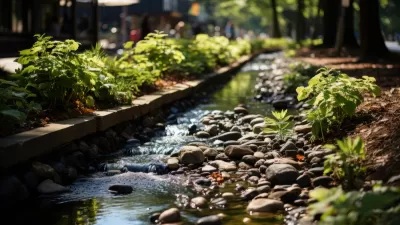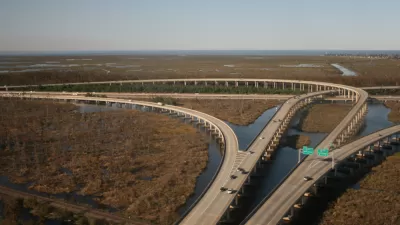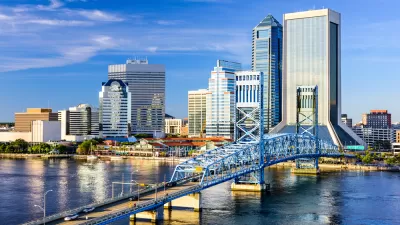A Rutgers professor restores natural processes to help shorelines adapt to rising sea levels.
In The Harvard Gazette, Alvin Powell reports on the work of Professor Steven Handel, who is using green infrastructure to combat the phenomenon known as "coastal squeeze."
Coastal squeeze occurs in habitats that exist between a naturally migrating shoreline and a man-made immoveable barrier, like a road.
Or as Powell writes, "what people may view as scenic coastal roadways, the natural communities of plants and animals may experience as terminal barriers, blocking their migratory response to rising seas."
Handel is a Rutgers professor visiting who worked on the development of the Fresh Kills landfill site on Staten Island; his approach is not unlike what the Dutch have been doing for many years, or what is now being done in coastal cities like San Francisco.
"The approach Handel described begins with accepting that the seas will rise. It takes projections for how sea levels will change familiar landscapes and moves forward from there, looking for opportunities such as inland water bodies and waterways that may soon be brackish, making them potential sites for future salt marshes. Newly engineered marshes can replace those drowned by the rising tide, buffer storms, and provide breeding grounds for fish and birds. Other opportunities lie in brownfields and abandoned sites that could be rehabilitated into places where communities meet the sea and around which fresh development can grow."
In cities across the United States, green infrastructure is an increasingly popular tool to mitigate the effects of climate change, especially in the wake of natural disasters.
FULL STORY: Transforming the ‘coastal squeeze’ from climate change

Planetizen Federal Action Tracker
A weekly monitor of how Trump’s orders and actions are impacting planners and planning in America.

Congressman Proposes Bill to Rename DC Metro “Trump Train”
The Make Autorail Great Again Act would withhold federal funding to the system until the Washington Metropolitan Area Transit Authority (WMATA), rebrands as the Washington Metropolitan Authority for Greater Access (WMAGA).

DARTSpace Platform Streamlines Dallas TOD Application Process
The Dallas transit agency hopes a shorter permitting timeline will boost transit-oriented development around rail stations.

LA County Creating Action Plan to Tackle Extreme Heat
Los Angeles County is creating a Heat Action Plan to help communities stay safe during extreme heat, with steps like adding more shade, improving buildings, and supporting the neighborhoods most at risk.

Maryland Plans Quick-Build Complete Streets Projects
The state will use low-cost interventions to improve road safety in five Maryland counties.

Downtown Los Angeles Gears Up for Growth
A new report highlights Downtown L.A.’s ongoing revival through major housing projects, adaptive reuse, hospitality growth, and preparations for global events in the years ahead.
Urban Design for Planners 1: Software Tools
This six-course series explores essential urban design concepts using open source software and equips planners with the tools they need to participate fully in the urban design process.
Planning for Universal Design
Learn the tools for implementing Universal Design in planning regulations.
City of Charlotte
Municipality of Princeton
Roanoke Valley-Alleghany Regional Commission
City of Camden Redevelopment Agency
City of Astoria
Transportation Research & Education Center (TREC) at Portland State University
US High Speed Rail Association
City of Camden Redevelopment Agency
Municipality of Princeton (NJ)





























